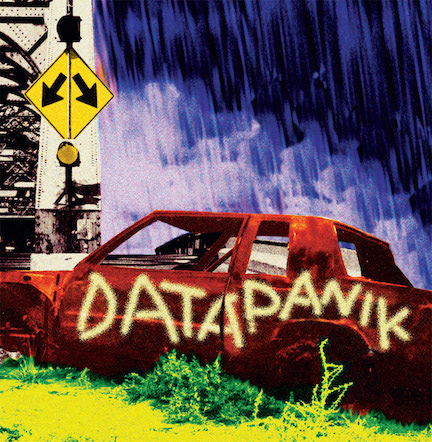What is Datapanik?

What is the point? Until late into the 20th Century Americans tended to identify themselves by their homestate. Ohioans were Ohioans first and Americans second. At the outbreak of the Civil War, President Lincoln offered command of the Union forces to Robert E. Lee. Lee, with anti-slavery opinions, chose to side with the Confederacy because he was a Virginian.
President Roosevelt, in the 30s, inaugurated an encroaching Federalism. The National government had no business determining highway codes or structure, for example, but they offered states large amounts of money to accept federal control. States, always hungry for money, accepted the deal. The die was cast. The paradigm expanded.
By the 60s, the takeover and transformation of the country was well advanced. Media, however, was still regionally-flavored. Television and radio still represented a wild frontier, attractive to the unconventional young. Biting at the stranglehold of the Great And The Good were young punks who found themselves slices of opportunity locally because of the insatiable need to fill air time. In the early 70s, the emergence of low-budget UHF TV channels opened more opportunities, for a brief window. At the other end of the spectrum, however, national media, federal media, exerted itself. By the end of the 70s, regionalism was disappearing.
Datapanik is a principle devised by David Thomas and John Thompson in the late `70s to explain The Way Things Are in a society governed by Media. It has these propositions:
- Information is a sedative, a kind of existential palliative care.
- Dataflow is imperative.
- Info-junkie culture is inevitable.
- Judgment impedes dataflow. It is anathema.
- Dataflow requires that all things be demonstrable as true all of the time.
Hence the fertile ground found in the relative silence of isolation – whether that isolation be psychological, social or physical. Hence the protective power of geography. Maybe it’s an instinctive reflex for self-preservation that we turn to that which is beyond words. It’s not surprising then that much of what survives of Folk Culture is encoded into the Sound of Musical Activity and can be found in the detritus of popular culture. Musicians operate in readymade insular structures. The aesthetic of a brotherhood provides a sufficiently tough and dedicated core. Musicians instinctively preserve and protect their geography by encoding it into sound, preserving it in a place safe from predatory media beasts. In the cyclotron, physicists generate rarefied particles of subatomic matter that only exist for nanoseconds before being torn apart. The simple act of observing these particles alters their nature. Everything the Media Priests observe they tear apart. The camera steals the soul. Only a closed brotherhood survives such a hostile environment.
Datapanik is the seed from which sprouts Modernity. Modernity spreads through societies wiping away value and judgment. Datapanik describes the mechanism. Media is driven by it. If it is likened to a virus, then the media itself is the laboratory where the virus was germinated and from which it spreads.
Undeterred, Datapanik will reshape society in ways that George Orwell and Aldous Huxley could only imagine.
Datapanik provides a cure to itself. Hence, the first corollary, codified thusly:
We don’t promote Chaos. We preserve it.
Feed debris and detritus into the system. Dataflow, the only imperative, is maintained. Recall the Theory of Spontaneous Simultude, which says that everything is like something else.
For the human being there is no alternative to Meaning.
Judge the debris and detritus that gets thrown into the system carefully. It can be a language.